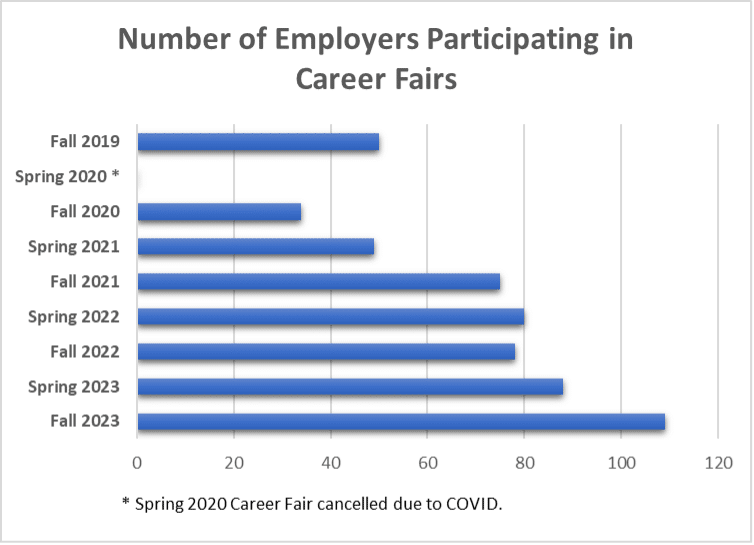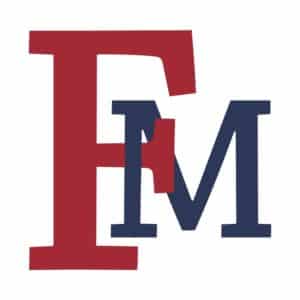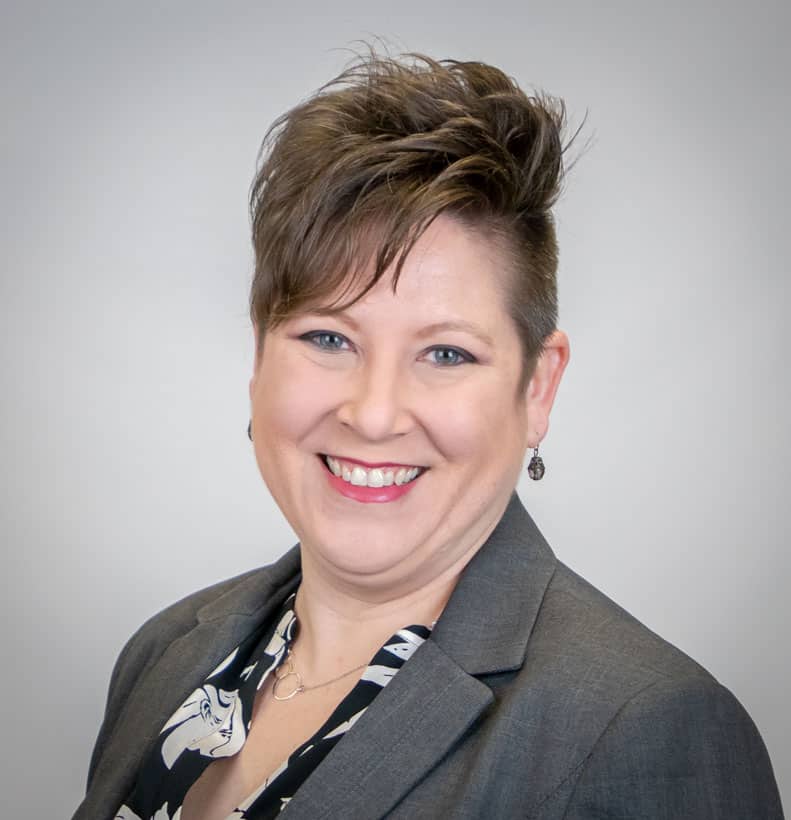PROVOST
The Provost is the chief academic officer of Francis Marion University and with the assistance of the associate provosts, school deans, and department chairs, oversees the undergraduate and graduate programs of the University.
Provost Office Staff
Deans and Department Chairs
Dean – Dr. T. Alissa Warters
Biology
Dr. Vernon Bauer
Chemistry
Dr. Jennifer Kelley
English & Philosophy
Dr. Meredith Love-Steinmetz
Fine Arts
Prof. D. Keith Best
History
Dr. William Bolt
Mass Communication
Dr. Stan Diel
Mathematics
Dr. Thomas L. Fitzkee
Modern Languages
Dr. Shawn Smolen-Morton
Physics and Astronomy
Dr. Derek W. Jokisch
Political Science and Geography
Dr. Dillon Tatum
Psychology
Dr. Crystal R. Hill-Chapman
Sociology
Dr. Jessica M. Doucet
Dean – Dr. Hari Rajagopalan
Associate Dean – Dr. Johnathan G. Munn
Interim Dean – Dr. Erik Lowry
Associate Dean –
Dean – Dr. Karen K. Gittings
Nursing – Dr. Rhonda Brogdon
Speech Language Pathology – Dr. Frances Burns
Healthcare Administration – Dr. Sarah Kershner
Dean – Ms. Demetra T. Walker
Grants
Concept Approval Form
As soon as you have decided to undertake a grant, you need to fill out the Concept Approval Form for the grant. The form provides the University with core information regarding your proposed activity. It also provides everyone with documentation that this activity was discussed and was approved, at least at the conceptual level.
After filling out the details on the form, you have your Department Chair sign it. Your Department Chair passes it onto the next administrator on the list for approval. At any point in this process, discussions may occur to further clarify what will be entailed in the proposed activity. Once the President has signed the form, it is sent to Shara Moore in Business Affairs with a copy also residing in the Provost’s Office.
General Information on Grants at FMU
The Grants Development Program works with campus members to prepare grant proposals to external funding agencies. In doing so, the Grants Development Program also works closely with the Office of Financial Services, Human Resources, Accounting, the University Foundation, and the Office of the Provost. Faculty are encouraged to meet with the Director of the Grants Development Program to acquaint the office with their current and anticipated interests. Doing so enables the office to add that information to search criteria so that campus community members can be notified of funding sources and opportunities that may support their project interests. As soon as a faculty member plans to pursue a particular funding source, they are asked to complete a Grant Concept Approval form to obtain requisite permissions from their Department Chair, Dean, Provost and the President of the University. The form is available on-line at this site in word processing formats for both Macs and PCs.
Reasons to consider doing a grant
Grants provide faculty with some amazing opportunities. This is your chance to turn ideas into reality – whether to carry out a research project or to demonstrate a new way of doing something. Many grants provide faculty with a way to build in additional professional development, equipment, materials, and travel. They provide a rich environment to gather data for peer-reviewed articles. Most importantly, they are a key scholarly activity that enhances your overall development as an academic.
An article you may want to look at was written by Kenneth Henson of the Citadel, a specialist in grants at the post-secondary level. He has done a nice job of providing some insights into the grants process for faculty members.
Steps in doing the grant
Why the University must sign-off on the grant
Foundation vs. University
GrantStation Information
Grant Deadlines
You will find that you will read the guidelines for a grant several times, if not more! Keep an eye on the deadline date. This can be tricky. Check for the following:
A. The grant RFP says that the grant must be received by a particular time and date. Remember – all your work will be for nothing if it is not received on time. If 5:00 p.m. is the cutoff, then 5:01 p.m. is too late.
Don’t assume because you sent it via the post office that the funding agency will still accept it if it shows up a day late. Many agencies will tell you that if you send it via the postal service, you’ll have to have a postmark on your package that must be 5 working days (not including weekends) in advance of the deadline. Keep a receipt for your package that you can use to argue your case in the event the parcel does arrive late. You’ll need it.
The State does have a free courier service that runs between state agencies. Unfortunately, it can’t guarantee that a package will get into Columbia on time. In that situation, a date stamp doesn’t do a thing for you according to one of the state agencies with whom we dealt. Get behind on your project or run into last minute difficulties and you’ll find yourself dashing to Columbia with the package in hand. Don’t worry – you won’t be the first person to do it and you won’t be the last.
The University does have a regular commercial courier pickup on campus. Call the Warehouse to arrange a time early in the day. Normally, someone will be around to pick up your package by 2:00 p.m. in the afternoon. If you’re not going to be ready until later in the day, get your label with the proper account number on it and then drop it off yourself in town at the correct courier depot on your way home. Talk to your department to get one of the labels filled out and ready to go.
B. The grant RFP says the grant must be sent by a particular time and date. In this scenario, you feel like you’ve got a little bit more breathing room. In reality, you don’t. A lot of federal agencies seem to be encouraging people to use commercial courier services over the post office because of the security issues in place for handling postal packages. There can be significant delays for items travelling through the regular mail service due to the security precautions at the other end.
Electronic Submissions of Grant Applications
In this scenario, the grant RFP says you must submit the grant electronically by a certain time and date through an online portal. NSF has been using this for quite a while. The federal department of education has also started the move to online submissions. Their system is actually quite user friendly compared to NSF.
Concerns you should have over electronic submissions:
Apart from the usual nightmares that you have left it until the last minute and are now concerned that the entire University network will go down, you have to be very concerned about the authorization process and the time lines associated with that process. Electronic submissions are actually a multi-step procedure.
Once you get all of your bits and pieces uploaded, the system sends a message to the authorized representative for the University who must electronically sign your document to authorize it to go forward to the competition. Without that step, your proposal is going nowhere. For electronic submissions, the Provost’s Office has been the authorized representative. NSF provides a breathing space between your submission of the proposal and the authorized university representative signing it. This allows for anomalies such as submissions that occur late at night or for a situation when a person could be out of town. Note that the federal department of education does not do that. If your submission is to be in no later than midnight on a particular date, then once you submit your proposal, the authorized representative must also electronically sign your proposal before that midnight hour. Of course, if you’ve got the proposal in early, that won’t be a problem. On the other hand, if you are indeed submitting it at the very last minute possible, and it will be happening well after work hours, you could have some excitement.
Getting a focus for your grant efforts
Many people approach grants with a shopping list of things they want rather than with an outcome in mind. The “shopping list” approach can result in a lot of stress because you end up twisting yourself out of shape to try and get it to fit the objectives of the funding source. Without a logical outcome, trying to set up coherent arguments that justify the “shopping list” gets very tricky.
The easy way to begin your process is by playing the “So what?” game with yourself. Simply state your case in a sentence or two as to why you need this money. Next, if you can find a volunteer to assist you with this process, read aloud your statement and get them to say “So what?” Now, try and answer that question. Each time you come up with an answer, have them challenge you by saying, “So what?” Eventually, you’ll either discover you’ve been heading in the wrong direction or you’ll find that you have hit on the heart of the matter and are ready to put everything else into place. Play “So what?” by yourself or with a partner – it’s a little exercise that can save you a lot of time.
Salary-related issue for grants
A large number of grants provide faculty with the opportunity to buy out their time from the University or to arrange to receive additional hours – both during the year and especially in the spring and summer months. The State does not allow faculty to earn more than their regular hourly wage. Nor can faculty earn more than a particular percentage over their regular salary during the course of the year. Therefore, it is important that you get accurate figures to use in your budget section. Human Resources can supply you with the necessary information. The person to contact there is Danagene Razick (843-661-1142).
When it comes to including the cost of your time in a proposal, you have to remember that your salary consists of both wages and fringe benefits. Those fringe benefits can cost up to an additional 35% (and as health costs continue to increase, that number may also increase). The University pays for a large percentage of our benefits. Remember, we still have to pay our own portion of retirement, social security, and taxes, and any other applicable deductions on top of that.
So why worry about salary and fringes when doing a grant budget? Consider the following examples:
a. The budget shows one flat rate for the faculty member, $1,000. In real terms, that means the check they receive from their work might show a total of anywhere from $650 to $825. (Everything is dependent upon your individual deductions as well as the employer fringes.) That’s what they can put in the bank. The institution had to deduct the benefits portion from the grant funds as the grant was picking up the faculty member’s time. It also had to deduct those items we are personally responsible for. Occasionally, a grant might be set up such that the grant picks up the wages for the faculty member and the institution picks up the fringe benefits. All of those things have to be negotiated prior to the grant being submitted.
b. In our second example, the grant budget is set up to cover both the salary at $1,000 and a calculated estimate of the fringe benefits on top of that. Apart from the individual deductions such as social security, retirement, and taxes, the amount on the check that goes in the bank will be much higher than in our first example (a).
c. Any money over your regular salary will not have health and dental deducted.
d. If your intention is to receive additional funds from another state agency or a grant during the time you are under contract with the University, it is imperative that you meet with Human Resources to be sure you are within the State regulated guidelines.
An important exception you should know about . . . .
In the beginning, I naively assumed that all PreK-12 schools and Universities were state agencies. PreK-12 schools are not considered state agencies. Therefore, in a situation where a school is the fiscal agent (they get the money directly from the funding agency and handle the bills) for the grant and they’ve retained your services, then the salary you receive from them is not counted towards your annual total, nor is it subject to the hourly wage limitations. In other words, it is as if it didn’t even happen! However, if they buy your services from the University and you receive your check from the University, then it does count towards the annual total limitations and the hourly wage limitations. Always, make sure that your time commitments do not interfere or conflict with your scheduled teaching and office hours. Clear any such arrangements with your department chair. Watch how you set it up and always double-check on regulations as they change!
DUNS, TNS, EIN Numbers
On all federal grant applications, you will come across a request on the cover sheet for a DUNS identification number. Recent application forms are also calling for the TNS number. Shara Moore, Jane Madden, and Cathy Shwartz all have those numbers or can find out for you.
REAL Grants
The REAL Program at Francis Marion University solicits proposals for funding for new and existing programs in experiential or nontraditional learning. Experiential learning opportunities occur outside the traditional classroom, library or laboratory. REAL program funds are only for undergraduate students.
PEAK Grants
The PEAK (Professional Experience and Knowledge) Program at Francis Marion University solicits proposals for funding new and existing programs that develop students’ professional knowledge and career-readiness skills.
See Financial Services policies on Grants for more information.
Student Achievement & Success
The mission of Francis Marion University is to make available excellent educational programs for the people of the region and the state. Student achievement is a vital part of the mission of Francis Marion (FM), and to evaluate student success, the University uses student achievement data, including student retention and graduation rates, external program accreditation, pass rates on pre-licensure and licensure examinations, student and alumni satisfaction surveys, and where appropriate, job placement rates.
Evaluation of student achievement data supports the overall mission of the University, its priorities (as set forth in its strategic plan and annual accountability report), and its degree programs.
Freshmen Retention: Based on information as reported to the South Carolina Commission on Higher Education (SCCHE) and from National Student Clearinghouse (NSC) for the cohort.
| Full-Time Freshmen Retention Rate | |
| 2018-2019 | 68.9% |
| 2019-2020 | 67.6% |
| 2020-2021 | 65.6% |
| 2021-2022 | 64.6% |
| 2022-2023 | 69.2% |
Six-Year Graduation Rate: Based on data as reported to the SCCHE and Integrated Postsecondary Education Data System (IPEDS)
| Six-Year Graduation Rate | |
| Cohort Fall 2011 - Reported through August 2017 | 37.4% |
| Cohort Fall 2012 - Reported through August 2018 | 39.3% |
| Cohort Fall 2013 - Reported through August 2019 | 43.9% |
| Cohort Fall 2014 - Reported through August 2020 | 44% |
| Cohort Fall 2015 - Reported through August 2021 | 43.1% |
| Cohort Fall 2016 - Reported through August 2022 | 39.2% |
| Cohort Fall 2017 - Reported through August 2023 | 42.7% |
Student Success Enrollment and Graduation Rates, as reported by (NSC)
| Success Indicators for Fall 2016 Cohort of First-Time Full-Time Undergraduates | ||
| 4 Years (%) | 6 Years (%) | |
| Completion Rate. Graduated with a Bachelor's Degree from FMU or Another Institution | 24% | 48% |
| Persistence Rate. Enrolled at FMU or Elsewhere | 44% | 13% |
| Earned Credential other than Bachelor's Degree at Another Institution | 7% | 12% |
| Total Student Success Rate. Enrolled or credentialed at FMU or Elsewhere (sum of the above) | 75% | 73% |
| Success Indicators for Fall 2017 Cohort of First-Time Full-Time Undergraduates | ||
| 4 Years (%) | 6 Years (%) | |
| Completion Rate. Graduated with a Bachelor's Degree from FMU or Another Institution. | 29% | 51% |
| Persistence Rate. Enrolled at FMU or Elsewhere | 42% | 11% |
| Earned Credential other than Bachelor’s Degree at Another Institution | 6% | 11% |
| Total Student Success Rate. (Enrolled or credentialed at FMU or Elsewhere) | 77% | 73% |
Francis Marion’s Office of Institutional Research collects data on completion of state licensing examinations. These data are presented annually in the Annual Accountability Report which is submitted to the Office of the State (SC) Budget and are as follows:
- The American Speech-Language-Hearing Association requires a three-year average of 80% for the three most recently completed academic years. The three-year (2021-2023) average PRAXIS pass rate for the Master of Speech-Language Pathology Program is 89%.
- From 2020-2023, the pass rates of graduates from the Francis Marion University Nursing Program on the National Council of State Boards of Nursing Licensing Exam (NCLEX-RN) have met the accreditation benchmark of a minimum passing standard of 80% and a pass rate for first-time test takers within 5% of the national average, as required by the South Carolina Board of Nursing.
Annual Pass Rates for Graduates of Registered Nursing Programs on the National Council of State Boards of Nursing Licensing Exam (NCLEX-RN)(First-time test takers):
| Average | 2020 | 2021 | 2022 | 2023 |
| National | 82.25% | 82.48% | 79.91% | 88.56% |
| South Carolina | 90.45% | 89.05% | 87.13% | 94.02% |
| Francis Marion University | 90.57% | 93.33% | 82.86% | 88.31% |
Graduating seniors take a Senior Exit Survey (95% or better response rate) which includes a question concerning post-graduation employment. The percentages of students who graduated in December 2023 that indicated that they had been offered full-time employment are below. This value is consistent with the rates for previous semesters and data collected by the Career Development Office.
| Type of Degree | % |
| Bachelors | 42.0% |
| Masters | 77.2% |
| Doctorate | 100.0% |
The high participation rate of regional employers in career fairs sponsored by the Career Development Office indicates that these employers find FM graduates to be qualified and motivated employees.

- Francis Marion University Mission Statement
- Strategic Plan
- Accountability Report
- FMU Catalog
- Common Data Set
- South Carolina Commission on Higher Education
- Senior Exit Survey Procedures
- National Student Clearinghouse
- NCAA Division II Graduation Rates Institution Report information
- Integrated Postsecondary Education Data System
- National Council of State Boards of Nursing Licensing Exam
Accreditation
SACSCOC Accreditation
Francis Marion University is accredited by the Southern Association of Colleges and Schools Commission on Colleges (SACSCOC) to award baccalaureate, masters, educational specialist, and doctorate degrees. Francis Marion University also may offer credentials such as certificates and diplomas at approved degree levels. Questions about the status of Francis Marion University may be directed in writing to the Southern Association of Colleges and Schools Commission on Colleges at 1866 Southern Lane, Decatur, GA 30033-4097, by calling (404) 679-4500, or by using information available on SACSCOC’s website (www.sacscoc.org).
SACSCOC Substantive Change Policy
Accreditation for University Programs
Upon request, accreditation documents may be viewed in the Office of the Provost during normal business hours. The University is approved by the South Carolina State Board of Education and is a member of the American Council on Education and the American Association of State Colleges and Universities.
In addition, several individual academic programs have been recognized by specialized accrediting organizations:
- The business programs are accredited by the The Association to Advance Collegiate Schools of Business (AACSB).
- The teacher education programs are accredited by the National Council for Accreditation of Teacher Education (NCATE) and approved by the South Carolina Board of Education.
- The chemistry program is approved by the Committee on Professional Training of the American Chemical Society.
- The graduate psychology program is accredited by the Master’s in Psychology Accreditation Council (MPAC) and meets the standards of training approved by the Council of Applied Master’s Programs in Psychology (CAMPP).
- The specialist degree in school psychology is approved by the National Association of School Psychologists (NASP).
- The graduate physician assistant studies program is accredited by the Accreditation Review Commission on Education for the Physician Assistant (ARC-PA).
- The theatre arts program is accredited by the National Association of Schools of Theatre (NAST).
- The visual arts and art education programs are accredited by the National Association of Schools of Art and Design (NASAD).
- The nursing program is accredited by the Accreditation Commission for Education in Nursing (ACEN).
Graduate and Undergraduate Degrees and Undergraduate Majors at Francis Marion
Bachelor of Arts
Major: CIP Code:
| Biology | 260101 |
| Economics | 450601 |
| English | 230101 |
| History | 540101 |
| Mass Communication | 090102 |
| Mathematics | 270101 |
| Modern Languages | 160101 |
| Political Science | 451001 |
| Psychology | 420101 |
| Sociology | 451101 |
| Theater Arts | 500501 |
| Visual Art | 500701 |
Bachelor of Science
Major: CIP Code:
| Art Education | 131302 |
| Biology | 260101 |
| Biology (Medical Technology Emphasis) | 260101 |
| Chemistry | 400501 |
| Computer Science | 110101 |
| Early Childhood Education | 131210 |
| Economics | 450601 |
| Elementary Education | 131202 |
| Engineering Technology | 159999 |
| Health Care Administration | 510701 |
| History | 540101 |
| Industrial Engineering | 143501 |
| Mathematics | 270101 |
| Middle Level Education (Mathematics/Science Licensure) | 131203 |
| Middle Level Education (Mathematics/Social Studies Licensure) | 131203 |
| Middle Level Education (Mathematics/English Licensure) | 131203 |
| Middle Level Education (Science/Social Studies Licensure) | 131203 |
| Middle Level Education (Science/English Licensure) | 131203 |
| Middle Level Education (Social Studies/English Licensure) | 131203 |
| Music Industry | 501003 |
| Pharmaceutical Studies | 512099 |
| Physics | 400801 |
| Political Science | 451001 |
| Psychology | 420101 |
| Sociology | 451101 |
Bachelor of Business Administration
Major: CIP Code:
| Accounting | 520301 |
| Business Administration | 520201 |
| Economics | 520601 |
| Finance | 520801 |
| Management | 520201 |
| Management Information Systems | 521201 |
| Marketing | 521401 |
Bachelor of Science in Nursing
Major: CIP Code:
| Nursing Generic (No RN) | 513801 |
| Nursing (RN to B.S.N.) | 513801 |
| Nursing (RN to B.S.N.) – Blended Distance Education | 513801 |
Bachelor of General Studies
Major: CIP Code:
| General Liberal Arts and Sciences | 240101 |
Master of Business Administration
Major: CIP Code:
| Business Administration |
Master of Education
Major: CIP Code:
| Instructional Accommodation | 131011 |
| Learning Disabilities | 131011 |
Master of Arts in Teaching
Major: CIP Code:
| Learning Disabilities | 131011 |
Master of Science
Major: CIP Code:
| Applied Psychology | 422813 |
| Physician Assistant Studies | 510912 |
Master of Science in Nursing
Major: CIP Code:
| Family Nurse Practitioner | 513805 |
| Nursing Educator | 513817 |
Specialist in School Psychology
Major: CIP Code:
| School Psychology | 422805 |




